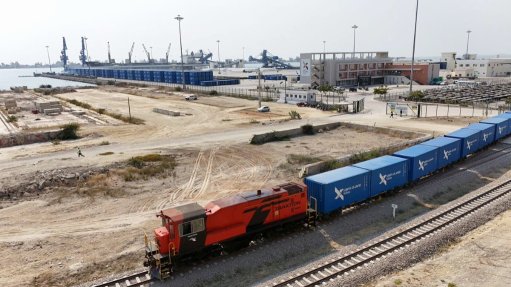Africa Day – 60 years on
Assuming you are reading this article on this edition’s publication day, the odds are you may be nursing a hangover, unless you live in South Africa or in the other countries where Africa Day – May 25 – is not a public holiday, in which case you spent yesterday at the office instead of celebrating in the way we sons and daughters of the African soil know how to.
It was on May 25, 1963, that the heads of 32 African States that had attained independence converged on the Ethiopian capital of Addis Ababa to launch the Organisation of African Unity (OAU), the antecedent organisation of the African Union (AU).
One of the leading lights at that gathering was Ghana’s Kwame Nkrumah, whose country had emerged as the first independent State in sub-Saharan Africa in 1957. Nkrumah’s vision was for a truly united continent, even from the economic perspective. Here is a snippet from his speech on that glorious day: “No independent African State today by itself has a chance to follow an independent course of economic development, and many of us who have tried to do this have been almost ruined . . . The first step towards a cohesive economy would be a unified monetary zone, with, initially, an agreed common parity for our currencies . . . When we find that the arrangement of a fixed common parity is working successfully, there would seem to be no reason for not instituting one common currency and a single bank of issue.”
But it would seem Nkrumah was ahead of his time. Just under three years after the inaugural OAU summit, he was overthrown in a military coup and would spend the rest of his days in exile in Guinea, a fugitive from the land he fought so hard to free from colonialism. He died in Romania in 1972, aged 62.
Africa may not be as envisioned by the likes of Nkrumah, but the idea of increased integration – including on the economic front – is certainly gaining traction. We now, for instance, have the African Continental Free Trade Area (AfCFTA), which should boost intra-African trade significantly.
Indeed, the AU’s theme for 2023 is ‘Year of AfCFTA: Acceleration of the African Continental Free Trade Area Implementation’. The year-long activities are aimed at enhancing existing trade collaboration among AU member States, regional economic communities, the private sector, development partners and other stakeholders. Particularly targeted will be trade in value-added products.
This year, the AfCFTA Guided Trade will also focus on trade in services in five priority areas, these being tourism, transport and business services; communication services; financial services; as well as transport services, and tourism and travel-related services.
It is hoped that, under the AfCFTA Agreement, tariffs on 90% of the goods and services traded among African countries will be gradually eliminated, with this reduction in trade barriers expected to increase African countries’ income by $450-billion by 2035.
Forty-four African countries are currently party to the AfCFTA Agreement, having ratified the instruments establishing the free trade area, while all 54 countries on the continent have signed the agreement.
What’s more, as of February this year, 46 provisional schedules of tariff concession have been submitted by member States, including four from customs unions.
If it continues on this path, the continental body will cease to be a trade union for dictators, as the OAU was once characterised by a frustrated Yoweri Museveni, who led an insurrection that eventually toppled a pernicious government in Uganda in 1986. But that was before Museveni himself became drunk on power. He has been President ever since, and those who have dared to challenge him for the Presidency have lived to tell harrowing stories.
Article Enquiry
Email Article
Save Article
Feedback
To advertise email advertising@creamermedia.co.za or click here
Comments
Press Office
Announcements
What's On
Subscribe to improve your user experience...
Option 1 (equivalent of R125 a month):
Receive a weekly copy of Creamer Media's Engineering News & Mining Weekly magazine
(print copy for those in South Africa and e-magazine for those outside of South Africa)
Receive daily email newsletters
Access to full search results
Access archive of magazine back copies
Access to Projects in Progress
Access to ONE Research Report of your choice in PDF format
Option 2 (equivalent of R375 a month):
All benefits from Option 1
PLUS
Access to Creamer Media's Research Channel Africa for ALL Research Reports, in PDF format, on various industrial and mining sectors
including Electricity; Water; Energy Transition; Hydrogen; Roads, Rail and Ports; Coal; Gold; Platinum; Battery Metals; etc.
Already a subscriber?
Forgotten your password?
Receive weekly copy of Creamer Media's Engineering News & Mining Weekly magazine (print copy for those in South Africa and e-magazine for those outside of South Africa)
➕
Recieve daily email newsletters
➕
Access to full search results
➕
Access archive of magazine back copies
➕
Access to Projects in Progress
➕
Access to ONE Research Report of your choice in PDF format
RESEARCH CHANNEL AFRICA
R4500 (equivalent of R375 a month)
SUBSCRIBEAll benefits from Option 1
➕
Access to Creamer Media's Research Channel Africa for ALL Research Reports on various industrial and mining sectors, in PDF format, including on:
Electricity
➕
Water
➕
Energy Transition
➕
Hydrogen
➕
Roads, Rail and Ports
➕
Coal
➕
Gold
➕
Platinum
➕
Battery Metals
➕
etc.
Receive all benefits from Option 1 or Option 2 delivered to numerous people at your company
➕
Multiple User names and Passwords for simultaneous log-ins
➕
Intranet integration access to all in your organisation


















